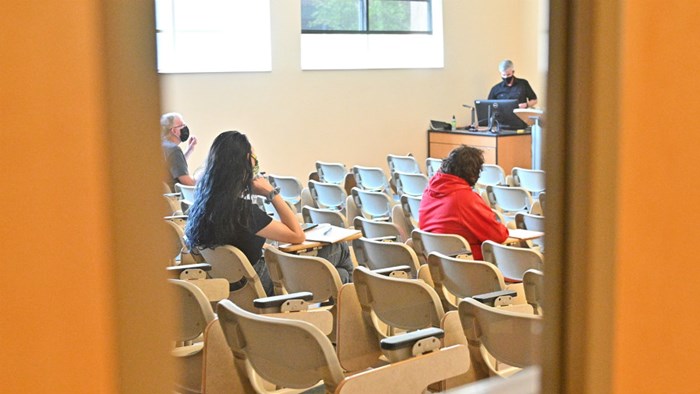
A precipitous drop in the number of international students this fall is taking its toll on evangelical Christian colleges.
Embassy and consulate closures, coronavirus-related travel bans, and fewer international flights made it difficult for international students to attend school this semester. Total international student enrollment across American higher education dropped by 16 percent this fall, according to a survey of 700 institutions by the Institute of International Education (IIE). New international student enrollment declined by 43 percent. Approximately 40,000 international students deferred enrollment to a future term.
The decline was less pronounced at small Christian colleges, but the absence of international students is still straining institutions in major ways.
“Every single student matters. That’s not just being trite about it. It’s significant,” said Chant Thompson, executive director of the North American Coalition for Christian Admissions Professionals. “It’s very, very impactful, even though people might say, on the whole spectrum, the international student population is not the majority.”
On average, about 4 percent of students at Council for Christian Colleges & Universities (CCCU)–associated schools come from outside the United States, according to the most recent data from the Integrated Postsecondary Education Data System. Recruiting more is often a priority.
International students, first and foremost, bring a global perspective to campus and have an impact on student life, Thompson said. Finances are a second driver. Many Christian colleges are facing challenges in enrolling students from the US, leading to revenue losses, and international students sometimes pay more than their US peers.
Christian colleges, however, “certainly commit dollars to not only recruiting but providing aid assistance to international students because of those bigger values they feel like international students bring to the campus ethos,” Thompson said.
The loss of international students this fall was notable at CCCU institutions. Seattle Pacific University saw the undergraduate international student population drop by 14 students, though an increase in international graduate students almost made up the difference.
“It was significant,” said Caroline Maurer, director of the office of global engagement. “A decline is a decline.”
North Park University in Chicago saw a 29-person loss, counting both those on student visas and those in exchange programs from foreign universities. According to administrators, COVID-19 made it more difficult for international students to come to the US—and made them less interested in doing so.
“Knowing they would be limited in that experience due to lockdowns and business closures, etc., the drop was not surprising,” said Michael Drake, North Park’s director of international recruitment.
IIE data, surveying 2,900 institutions, suggest the pandemic might not be the only reason for declining enrollments. There was a slight decrease the previous academic year as well.
Not every evangelical school saw a decline, though. Bucking the trend, Bethel University in Indiana brought in 11 more international students, for a total of 107. That’s the second year in a row the school saw a sizable gain in international students, said Barbara Bellefeuille, vice president for academic services.
Three new athletic programs have helped Bethel with recruitment abroad, Bellefeuille said. The increase would have been larger if not for the pandemic. Five international students deferred to another semester.
This semester’s setback was disappointing for those making strides in international student recruitment. Seattle Pacific recently instituted a series of changes, including accepting new kinds of test scores and waiving certain tests. Both Seattle Pacific and Bethel have recruitment officers specifically for international students.
CCCU schools will struggle with the financial hit from any loss of international students, but the calculus isn’t purely financial.
“We really believe education to be transformational,” Bellefeuille said. “I don’t think we can do that without being representative of the world here on this campus.”

Support Our Work
Subscribe to CT for less than $4.25/month


















